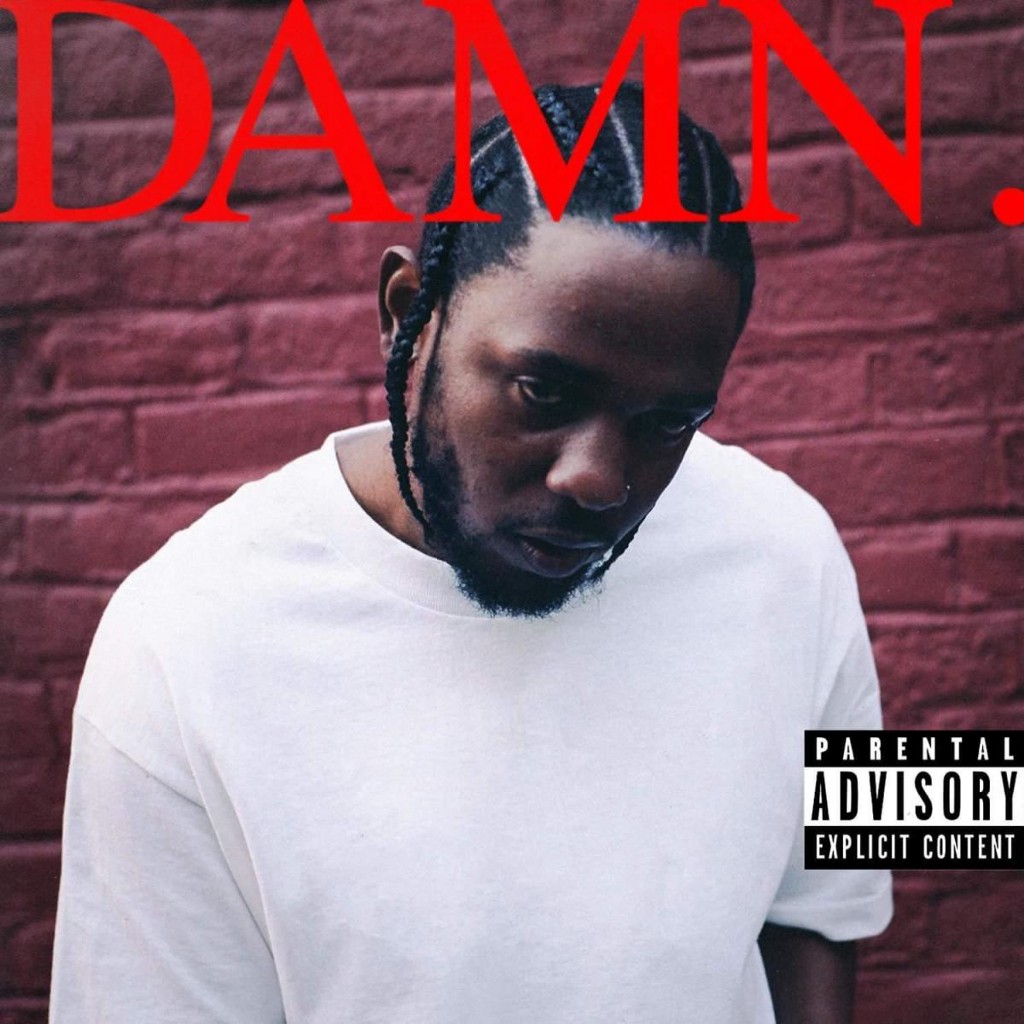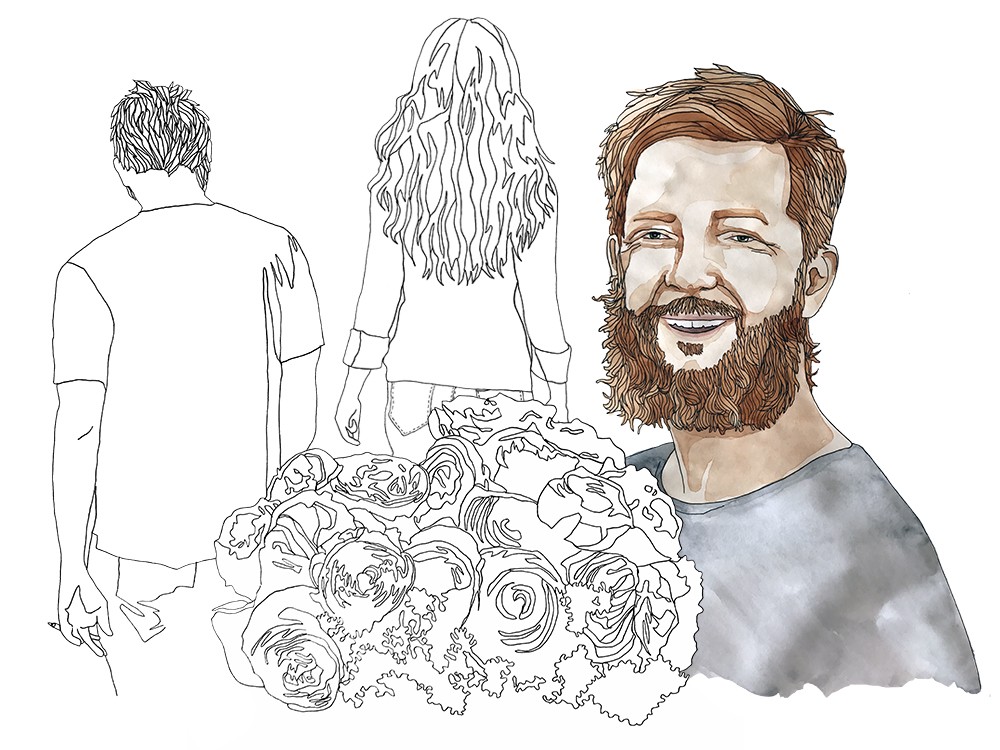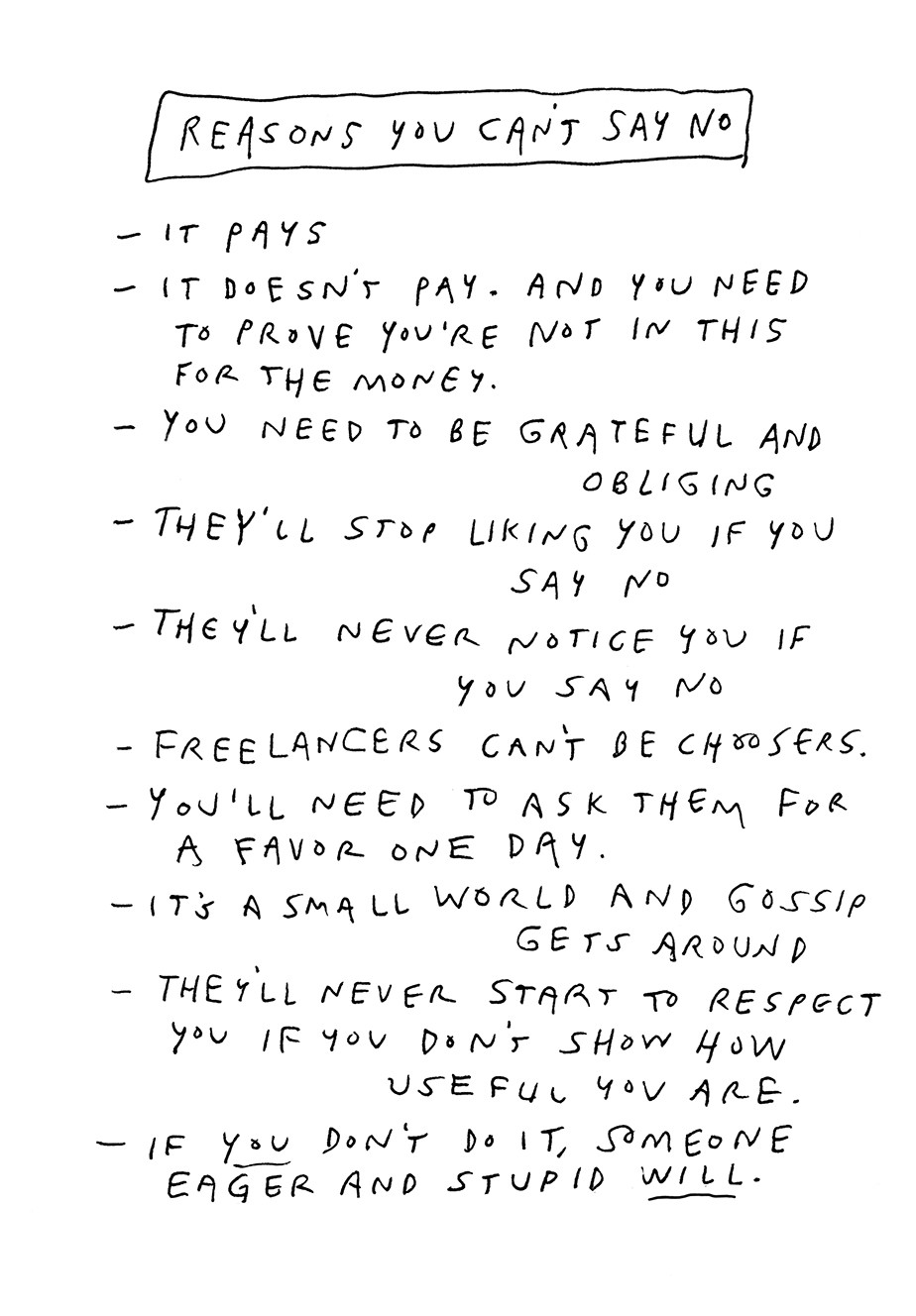True Facts
Kendrick Lamar’s “DAMN.” proves he’s a consummate storyteller.

Kendrick Lamar’s story has never been more accessible than in this moment, when he’s trying to overhaul it. Every artist works along two parallel narratives, that of their career, and that of their life; for all his prodigiousness as an MC and his obsession with the form, Lamar’s chief talent is trimming the distance between those worlds. He brings Infernal Affairs to Compton, and he brings Compton to the White House. Lamar and his newly introduced alter ego, Kung Fu Kenny, know how stories affect people, and with each new album, he advances the form’s function as a unit, and as its own singular world.
With the arrival of “DAMN.”, after a year of high-profile returns, the question of What Makes An MC has fresh blood. Except this doesn’t address Lamar’s skill as one of our great storytellers, full stop, a moniker generally bestowed to white men in glasses, with oeuvres of prose behind their names. But in tending to the specifics of his life and where he comes from, Lamar extends an invitation to everyone who listens. So through the vehicle of the album, and through giving us an “in” into his world, Lamar has plowed an entrance into that conversation: which of our storytellers will we allow to represent us? And how far are we willing to allow them to redefine the mainstream?
If “Good Kid, M.A.A.D. City” was his nod towards a day in the life, and “To Pimp a Butterfly” shadowed his ascendance to celebrity, then “DAMN.” feels like Lamar’s attempt to come back down from it all. Or it could be him grasping at everyone floating just underneath him. He tells a lot of stories on this record, from the origins of his label, to the perilousness of a walk around the block, but an overarching theme is the mundanity of our everyday decisions, which just happen to change the course of our lives. And Lamar knows how that sounds. He also knows that we know how it sounds.
Despite his latest turns at innovation, Lamar’s decision to string a narrative across an album is hardly innovative for the genre: since its inception, hip-hop has served as the storyteller’s medium. Whether it’s 3 Stacks, Jay-Z, Ice Cube, or Eminem, rap’s verified demigods traffic in narrative for solidification of their repute. It’s the serious lyricist’s calling card. And Lamar’s attempts master those same methods could be his tickets to entry. However singular a track may appear on its own (“i.” and “HUMBLE.” immediately come to mind), within the context of their whole, they take on an entirely different emotional weight: a major-key, guitar heavy clap-along becomes a strike against crippling depression; a braggadocious anthem is reintroduced as a meditation against excess.
But Lamar’s adherence to plot is also a means of reigning in his own public narrative: since a handful of missteps early in his career, he’s gone out of his way to avoid a certain brand of celebrity. He’s made some blunders, and now, instead of relaying his messages through gatekeepers, he’d prefer to speak for himself. He’ll surface as part of a dual entity every now and then, to usher the conclusion of an icon’s career, or to cosign a label mate’s come-up, but, for the most part, the rapper who said “all my life I want money and power,” he now seems resigned to the ailments that prestige can bring.
If Lamar’s career thus far has been a come-up, “DAMN.” is a gradual descent from the mountain. On “YAH.”, he sounds muted, absolutely monotone, a little sick of the situation at hand and a little resigned to the fruits that it will ultimately cease to bring:
My lastest muse is my niece, she worth livin’
He’s finally gotten the acclaim he wanted, but it’s a fuckton to chew on. He’ll stan for Killer Mike, but he’s “not a politician.” He’ll ride for Chance, but he’s not “about a religion” (although Lamar is, in fact, extremely spiritual in his own way).
As the record progresses, he continues adopting stories from the people around him: on “FEAR.”, he’s a black mother, anxious to instill fear in her child. He’s his father, slipping free biscuits to customers in gang territory. He’s the kids rolling around the streets of Compton, invincible and doomed, liable to the whims of the neighborhood and the nation:
I’ll prolly because I ain’t know Demarcus was snitchin’
I’ll prolly die at these house parties, fuckin’ with bitches
I’ll prolly die from witnesses leavin’ me falsely accused
I’ll prolly die from thinkin’ that me and your head was cool
I’ll prolly die from pressin’ the line, actin’ too extra
Or maybe die because these smokers
Are more than desperate
I’ll prolly die from one of these bats and blue badges
Body slammed on black and white paint, bones snappin’
After years spent building himself towards a come-up, Lamar raps himself back down to the Earth. He crafts his staircase track by track, extending those heights even as he descends. But how do you keep telling the story that needs to be told? How can you tell it in new ways? It is, inevitably, a narrative problem, and in a very good interview with Rick Rubin, Lamar acknowledges his father as the realist force in his life, and his mother’s impulses as a dreamer, before shouting out 2Pac, Biggie, Prince, and “the usual suspects” and noting the power of the narratives they wove:
The stories they were telling, whether it was fiction or not, these ideas that they were putting down made me believe any and everything that they were saying. Because it came from a space, whether being a realist point or imagination or whatever, because their ideas are so strong, and so heavy.
Lamar goes on to say that the characters and stories he inhabits are the voices and people complimenting his DNA; a motif he returns to on his most recent single:
Loyalty, got royalty inside my DNA
Cocaine quarter piece, got war and peace inside my DNA
I got power, poison, pain, and joy inside my DNA
I got hustle though, ambition, flow, inside my DNA
He knows these stories, and he’s lived them. Now he’s just trying to make them real. So he studies soul and rock and pop to inhabit them, cycling through mediums to bring them to life; and in this way, Lamar’s a student of the craft, as much as Roth or Paley or Dylan Thomas or Bob Dylan or Eugenides.

Home is Lamar’s chief preoccupation. So is the experience of leaving it, and the people he’s left behind — the folks whose lives he could’ve led, and the folks his success has entangled him with, and whether those parties can ever coexist. Compton, for Lamar, isn’t a series of statistics or a boon or a gutter or a type: it is a home with stories. It’s a city deserving of different forms and exploration, with people worth examining and prodding and glorifying. Lamar, like every other artist, has his motifs: the shadow of institutionalized oppression hanging over Compton, the tumultuousness of fate and chance, the fear of love, and the fear of failure. He returns to them on “DAMN.” because he needs to, because he knows that now he can tell them better.
When Mitchell S. Jackson, author of The Residue Years, was asked by The Paris Review whether or not he was worried about what he’d write next, he responded that he was, “in a way”:
But I don’t think it’s about having things to say, or waiting for things to happen to you so that you can write about it. It’s more about going back to that one story and telling it in different ways. I was listening to an interview with Jay-Z and he said that he’s only written about five stories in his whole career. He’s only had five things he wanted to say, but he’s said them differently… There are so many stories in a place. And nothing beats writing about home.
Lamar’s form certainly fits the times: over the past few months, a lot of us have felt our origins more vividly than we may have prior. Black-ness and Latino-ness and Asian-ness and other-ness have been magnified in a way that would baffle anyone who hadn’t already felt implicated over the past eight years. And while Lamar alleges that his aim is not political, he still lives in the world, and he has to deal with it.
On “LUST.”, he raps:
We all woke up, tryna tune to the daily news
Lookin’ for confirmation, hopin’ election ain’t true
All of us worried, all of us buried, and our feeling’s deep
None of us married to his proposal, make us feel cheap
He’s creating his own narrative to get by, just like the rest of us. And in a country that could elect a black man, only to immediately turn to an administration intent on erasing every last one of his imprints, variations in form are necessary to capture that history. The record has context, implicitly and explicitly, and that could be why “DAMN.” in West Texas isn’t the same as “DAMN.” in New Orleans, and all of this was intentionally, methodically plotted by Lamar.
An MC’s calling-card is his prominence, and who among his class is The Best, and while Lamar has made it clear that he’s engaged in that conversation, it’s one he takes less seriously than his role as a storyteller. He’s become the best chronicler of his own particular history. Which is, by turns, our history. His greatest gifts will be the stories he has to give. He knows they’re the only things that will last. And so Kung Fu Kenny becomes a muse, and a historian, despite whatever protests against him arise. Would that it were true of every MC.
The Leaks Are Coming From Inside Jared Kushner's House

IVANKA has always wanted to be a Russian oligarch, and now that she is the President’s daughter she has begun actualizing her dream, a London-style subterranean house under her brand new D.C. house. When he is not running errands for Gary Cohn, JARED oversees the construction. Today he phones a REPORTER while checking in on some new fixtures downstairs.
JARED [walking briskly past the general contractor, who is actually in charge of the construction, and speaking into his phone]: I want to leak something to you.
REPORTER [gesturing to his colleagues to come over for this]: Again? Great. Let me begin recording.
JARED [stepping over another contractor, this one gluing expensive, garish tiles onto a wall]: Remember when you said Bannon is the President? [JARED flicks one of the tiles with his free hand but he doesn’t know why.] Can you write in your next article that it’s really me who is the President?
REPORTER [skeptically]: Hmm, how do I say this? We think of you more as someone who has the President’s ear, like a moderating influence maybe, but not as someone per se in charge. Someone else does that part. Like one of the generals, who suggest bombing places to make the cranky baby happy.
JARED [lying]: Yes, yes. Those are all my ideas. To be a war president is my idea. So can you please call me President Kushner next?
REPORTER [brainstorming aloud the first draft of history]: I’m writing about how deeply incompetent the President is, on a structural level, but also how, in the long run, he is absolutely fine. And that’s because every day presents a new opportunity for him to become President. “One hundred days of becoming President Trump.” That’s the pitch at least. Can you tell me more about how you fit into this narrative?
JARED [triggered by REPORTER’s use of the word “pitch”]: Sure thing. [JARED straightens his back.] It’s an app the President can use when he is doing war and diplomacy. You just type in the name of a country, or like a zip code, and the product will tell him which political candidate in those places is the quote unquote Trump. Like all those House races or whatever, the ones they are constantly having. He can use the app for that. And then the Europe ones.
REPORTER [honestly]: I like that. So the app will tell him that Marine Le Pen is France’s Trump. That’s good.
[JARED jots down “Marine La ???” directly onto his hand, even though he knows IVANKA will question why there’s ink on his skin.]
JARED [shimmying past two carpenters building a sturdy and beautiful table that will rarely be used]: Right now I have a team of programmers coming up with all the different spellings the President might use. They’re writing an algorithm based off all his Twitter typos.
[Meanwhile it sounds like a literal earthquake upstairs. BANNON is back, and he is moving furniture around. The walls are quite thin, especially for an old home, and JARED can hear most of what BANNON is screaming.]
JARED [wondering whether he asked REPORTER to sign a non-disclosure agreement]: This is all anonymous, right? No one will know I am the one who says it’s President Kushner now?
REPORTER: It would help support the claim if we could source it.
JARED [genuinely curious]: Can you say Bannon said it?
REPORTER [frustrated because he just answered this question yesterday]: It doesn’t work like that.
JARED [emboldened]: Can you say that he is breaking into my house? We just changed the locks and I can hear him dragging Ivanka’s fainting couch across the first floor.
REPORTER [putting JARED on speaker so the newsroom can hear]: I can say that if it’s happening. Bannon lives with you?
JARED: He was supposed to move out and squat in his office. He is pushing the couch and he is screaming about how the furniture business used to thrive in great American cities like Jamestown and Roanoke before the globalists took over. He is screaming that he is driving the couch to the White House and he and Ted Nugent and Sarah Palin are going to chop it up with Kid Rock’s weapons and have a giant bonfire. All fucking night long. It’s Sarah Palin’s couch now. We’re white trash monsters and we love bonfires, he is screaming.
REPORTER [fishing]: He said he loves bonfires?
JARED [energized that he is leaking correctly]: Wait. He’s adding that maybe Palin will want the bonfire at the creek. The Potomac creek. He calls it a creek to get a rise out of the Democrats, my mother says. [JARED whispers.] She means me.
REPORTER [desperate for JARED to keep talking]: What else you got?
JARED: He can’t get the couch through the doorway. He is yelling that it’s stuck. Good fucking luck getting it back into your living room, he’s saying. He’s leaving, it sounds like. Next time you change your locks, he is screaming, don’t give a spare key to the support staff. Support staffs always like me because I negatively bond with them over the minority group they most fear is infringing on their economic progress.
REPORTER [fishing again]: Do you think that’s true?
JARED [stepping over an electrician who is wiring the fourth of four subterranean bathrooms]: Of course not. We’re very good to our help.
[The REPORTER is getting another call. He shushes the newsroom, and takes them off speaker.]
REPORTER: It’s your wife. Should I conference her in?
[JARED hears footsteps. It’s IVANKA. She has entered the subterranean part of the house. She evaluates the construction as she moves toward her husband.]
IVANKA [to JARED, via the conference call, but also in person]: I know you’re leaking to the press.
JARED [shamefully]: Did I break your heart?
IVANKA [bored]: What. No. [IVANKA directs a contractor to remove all the tile he has plastered to the walls. She pulls out a sample from her enormous bag and hands it to him. Then she addresses the REPORTER.] Hello, reporter. What did Jared tell you?
REPORTER: That’s not ethical for me to say.
IVANKA [while directing her lawyer via text to sue the contractors]: Ethics are for people whose income is derived primarily from a salary.
REPORTER: Can I quote you?
IVANKA: Of course not. That’s on deep background. So was whatever Jared told you, especially if it involved how our furniture blocked our doorway.
[IVANKA ends the call with the REPORTER. Then she lifts a Camelbak bladder bag she found on the sidewalk outside. The bladder bag is full of vodka and ground up painkillers.]
IVANKA [calmly]: Phone your mother and let her know we received the U.S. Treasury bonds she sent the children for the holiday.
JARED: That was kind of her.
IVANKA: She’s trolling us, Jared. She knows the bonds will be worthless by the time they mature. Please also tell her if she passive aggressively conveys she voted for her one more time that the kids and I are leaving you.
[JARED, desperate for validation, demonstrates his War and Diplomacy app to IVANKA who is now eating cashews, even though JARED is allergic.]
IVANKA: Tell her, Jared. [IVANKA finishing her cashews.] Steve also ignited a paper bag full of what I assume is dog excrement and left it in our doorway, alongside this. [IVANKA shoves the bladder bag at her husband.] Please resolve immediately.
[JARED nods pliantly, and writes down “Spotify but for fire departments,” on his arm. An electrician walks by, points to JARED’s note and says he thinks he means Seamless, not Spotify.]
Franklin Street, Brooklyn

Illustration: Forsyth Harmon
Earlier, I’d been walking behind a young guy with a spliff in one hand and a can of Arizona iced tea in the other, jeans coasting southwards of his skinny butt. He’d been progressing slowly, a blissed-out saunter, and I could picture the kind of expression he’d be wearing before I even levelled with him: there it was, a dopey, crooked smile like bunting sagged between tentpoles. A smile as much to do with the spring-at-last weather as the weed, which had smelled so good in the sunlight that I’d wanted to pluck that spliff from his hands with a quick, casual “may I?” gesture, take a drag, hand it back to him, walk on. I should have. Maybe if I’d been wearing something different—old jeans, instead of a strappy white dress on its first, self-conscious outing of the season—I would have. Maybe then I’d have felt safely in the realm of hi-and-bye rather than come-on.
I wonder how many of our interactions are, at some level, forms of redress for previous encounters with other people, efforts to rectify and recalibrate. Being meticulously kind to one friend, for example, after having snapped at another. A false mathematics: the friend you snapped at remains disgruntled and oblivious of your extra kindness to someone else. And yet, in our private internal universe, it feels as though balance has been restored.
When you stepped out of the florist some part of me wanted to rectify the non-encounter with the Arizona Iced Tea stoner and, since you and I were instantly, unavoidably walking in synch and side by side, ignoring each other would have been both ridiculous and mildly sociopathic. You were holding a big, femmey bunch of blush-colored dog roses, pink ranunculus and baby’s breath, and I looked at them, then thought of all the times I’ve walked down the street holding a bunch of flowers—how each time I’ve experienced the devastating comic genius of passing men who ask, grinning, “Are they for me?” or say, loudly, “You shouldn’t have!” It makes me suddenly lust for violence—Yes, everything is for you, Man, this world, these flowers, the female body, all here for your consumption. It makes me wish I were holding a bouquet of knives, not flowers. And of course the rage is compounded by knowing that any kind of display of irritation, any rebuke, would be met by the butthurt of “Jeez, just being friendly!” the unassailable confidence in the innocuous neutrality of the remark. There is no neutral.
So I thought, briefly, about playing the dude to you—some grim, ironic attempt to push things towards gender parity. But instead of “Are they for me?” which in practice sounds a lot more like making a lame come-on than summarily smashing patriarchy—I said, “Are they for you?” “I wish!” you said happily and you inhaled them heartily to telegraph your satisfaction. They were for your friend, whose birthday it was, and even though “her husband or daughter may have gotten her flowers already” you had thought, what the hell. You had a big, russetty, brohemian beard and were burly in a way that suggested craft beer, recreational woodwork and rugged optimism; I could see you as one of those dads who gamely dressed up in a princess outfit to please his three-year-old daughter. This flower-sniffing display won me over, is what I’m saying. You offered me a sniff and I took it and they smelled nice, but it was a faint fragrance. The weed, naturally, had been more pungent.
Thirteen Weeks Later
A reflection in verse

The week was quiet, as these things go (I’m grading on a curve)
With each successive “normal” day I waited for the swerve
“What evil shit is coming up? What will he ruin soon?
What nightmare will be next from this horrific old buffoon?”
I checked the news each hour with increasing fear and dread
I wondered if he’d caused a war with something dumb he said
The silence was so frightening there was no way to keep calm
I guess I’ll just be anxious till he finally drops the bomb
Jad & The, "Oscar Nom"
It’s like they want you to stay home today.

Due to nothing working the way it’s supposed to anymore, pretty much every subway line you might need to take this morning is either not running or experiencing delays. Plus the weather is gray and dull and [checks news] that guy is still the president. Go back to bed. You deserve it. Here’s something to listen to if you’re already stranded on a platform. Enjoy.
New York City, April 19, 2017

★★ The end of spring break and the arrival of the cold snap had left the parents in more motley array than usual at dropoff. Cloth coats were pressed into service over whatever anyone was wearing. The sky was bright at first, but there were just enough clouds in the east to forestall any warming, and the longer the day went, the grayer and bleaker it got. A grim breeze blew on the way home.
A Juicy White House Palace Intrigue Story
What’s going on behind closed doors, according to some.

As Donald Trump approaches the 100-day mark of his turbulent first term, top White House officials describe an executive branch still in near-constant turmoil and riven by infighting, with staffers unable to agree on such basic protocol as whether to turn off the “motion smoothing” effect on office televisions.
As major posts remain unfilled, tensions between two warring West Wing blocs have escalated so dramatically that President Trump recently called an all-hands meeting to address the problem, then ranted for ten minutes about the time Liberace snubbed him at an Esquire party in 1982. The factions left the meeting no closer to resolving their deep-seated differences.
This story is based on interviews with 183 sources, 172 of whom requested anonymity because of the sensitivity of the subject.
Top-ranking officials say the administration is increasingly divided between those who actively want to destroy the world (nicknamed “The Scary Ones” by their adversaries), and nihilists who pretend for appearance’s sake to care about anything beyond their own net worth (dubbed “The Kikes” by opponents, though several sources said this was not meant in an anti-Semitic way).
Tensions have mounted in recent weeks as Ivanka Trump and Jared Kushner have tried to nudge President Trump in a more moderate direction.
“Jared and Ivanka are good,” said two anonymous sources who had recently returned from a ski trip to Whistler. “Jared is a dynamic businessman who wants what’s best for America, while Ivanka cares deeply about climate change and women. Print that.”
In private conversations, Ivanka has been vocal in pushing the president to consider some of her feminist policy ideas: for instance, she wants the federal government to provide coat hangers to women who might no longer have access to abortion services under her father’s budget. It’s unclear whether he will greenlight her progressive proposal, but sources say she’s merely happy to be part of the dialogue.
Kushner, meanwhile, has assumed even more responsibility than previously reported, expanding his portfolio within the administration to abstract concepts such as “space” and “time.”
“He’s smart,” said Secretary of Energy Rick Perry. “Really smart.” One source said that Kushner had recently completed a particularly difficult equation on a blackboard in a hallway at NASA headquarters, though 46 other sources dispute that account.
Though the so-called “Kikes” might be ascendant for now, dozens of sources said it was too early to count out reactionary, populist firebrands like Bannon and Sebastian Gorka, who, several maintain, has never been to England despite speaking with a British accent.
“Kushner, Ivanka, Gary Cohn, Dina Miller — these people are nothing but globalist, cosmopolitan international banker types with ties to the Rothschilds, but I’m not anti-Semitic,” said one rumpled-sounding member of this faction, who spoke from a moving train he had just hopped. “They still don’t get why Trump won.”
Nevertheless, controversial proposals generated by “The Scary Ones,” such as an idea to publicly burn undocumented immigrants on a pyre using the text of the Paris Climate Agreement as kindling, are on hold for now.
Meanwhile, Stephen Miller, whom Trump sees as essential to his agenda, has been quietly asserting his power in subtle but unmistakable ways. Sources say that during the fiery debate over motion smoothing — the eventual verdict was to leave it on — Miller grabbed a pretzel out of a bag of Chex Mix on the table, knowing this was National Security Advisor H.R. McMaster’s favorite snack. But when McMaster followed suit, President Trump chided him, saying, “maybe cool it with the pretzels, H.R.?”
“That was a clear sign of dominance by Miller,” said one aide. “The guy’s definitely an alpha.”
Whether such backbiting will subside and cohere into a more stable working dynamic is an open question. Some believe the president merely needs more time to find his footing.
“Trump’s a businessman,” said Newt Gingrich. “You can run a business chaotically, but in the White House, blah blah…it’s different than a business, blah blah…”
“I guess my quote goes here,” said political provocateur Roger Stone.
With the health care debacle still fresh in voters’ minds and a win on tax reform looking less likely by the day, it’s clear that the president could use a win.
One high-ranking official put it this way: “Look, a lot of people are saying ‘Donald this, Donald that…’ you can’t trust these people, ok? You can’t trust these people. Because the president won the electoral college by the biggest margin in 160 years, ok? Ok? And now what, you have Rosie O’Donnell, who’s still attacking me? It’s disgusting, folks. Disgusting.”
Follow Benjamin Hart on Twitter.
A Call For Submissions
Pitch, please.

Hi friends. I’ve been at The Awl just over one year. Can you believe it?? Shut up, I haven’t accidentally tweeted as The Awl in MONTHS!! Anyway I’ve found a nice rhythm and got some great regular contributors feeding you weekly content, like advice you did not ask for, and great pieces of classical music you should listen to in between all the Harry Styles loops, and bottles of wine that have been enjoyed.
But something I would like to see more of is um, well I hesitate to use the word “features” because too many people think that means “8–10,000-word whopper.” No, I’m talking nouns that are more in the 1,500–2,000-word range. Pieces. Articles. Content items. Investigations. Stories. Essays? Sure. Opinions? Only if they’re good. Personal Histories? I don’t know, are you interesting? Most people aren’t. Here’s what I do NOT want: thinkpieces about The Show, feelpieces about your job, tellpieces about trends, first-person narratives about leaving the internet and then coming back to it, or anything that has been previously published.
I care less about subjects than I do about quality and enthusiasm. If you have (or think you have) one or two thousand very compelling and ideally funny words for me about earthworms, or types of tweezers, or The Rural Purge, or language, or Swedish television, or very large cats, great. Everyone loves the internet, our main engine of cultural creativity. I personally love the spelling bee, my main engine of athletic excitement. Maybe you like video games or workaday television or the absurdity of high fashion. The more specific and peculiar the subject, the better. These are all topics, but it’s up to you to find the stories in them. Here are some other prompts:
- What is the one book to read about [X]?
- When did everyone become an expert on [Y]?
- What was the golden age of [Z]?
- What don’t you want to see on the internet anymore?
Entertain me! Make an argument! Explore a problem. Profile a clown. Visit a groundskeeper. Talk to a weaver. Tell me a secret. Send it to notes@theawl.com.
Relive Your Favorite Childhood Fairy Tales With Ravel's 'Ma Mère l'Oye'

Folks, it’s spring. Maybe not where you are, but it is where I am, and that’s a thing to be excited for. I have a sunburn, for example, which feels new and exciting and unrelentingly pleasant, as least for now, until my skins falls off. Anyway, speaking of “unrelentingly pleasant,” remember our friend Maurice Ravel? In the mess of all of our moody and Romantic Germans, he was the French composer I spent 1,000 words trying to figure out if he fucks? (More or less: yes, he does.) Well, I want to return to him, and even earlier on in his career, to a piece of music that is tonally the opposite of Bolero. It’s his 1911 suite, Ma Mère l’Oye, or… [drumroll for an English translation] Mother Goose!
Now don’t get riled: I know this is music for children and this is a column for adults, but Ma Mère l’Oye is one of the most enchanting pieces I’ve had the delight of playing. Many of my high school and college playing experiences were vaguely traumatic, for one reason or another, but this is one that brings back only fond memories, which, who knows, maybe it’s just nostalgia talking. Ravel originally composed to the piece for children of his friends to play and enjoy — composers were always doing shit like this, it seems, meeting nice children and being like, “look, I wrote you a nice piece of music about childhood” — and then later adapted it from piano to orchestra to a full ballet. The recording we’re listening to this week is the full ballet by the New York Philharmonic in 1971.
It begins with a light and airy Prélude — equal parts sleepy woodwinds and muted fanfare. Think of it as all of the members of the orchestra waking up slowly, easing themselves into the universe of these nursery rhymes. From there, with a hearty and almost foreboding crescendo, it’s right into the Danse du rout et scène, or the Spinning wheel dance and scene. A dance and a scene? Jackpot, baby. And what a dance this is: bouncing flutes and clarinet, runs on the harp (there’s harp here!), even a little bit of snare drum to keep rhythm in parts. Now I know you’re thinking or asking or typing a rude comment on Medium dot com, “Fran, what the heck nursery rhyme or Mother Goose story is the spinning wheel?” Buddy, get it together: we’re talking, of course, about Sleeping Beauty, and the spinning wheel that she pricked her finger on. It’s the rush of the song that indicates she’s going too fast, not paying attention, all the while allowing herself to fall victim to her curse.

From there, it gets into our more traditional fairy tales and nursery rhymes. Pavane de la belle au bois dormant is, in fact, a pavane — a type of couple’s dance originating around the time of the Renaissance — of Sleeping Beauty. And it begins as such, with a flute solo that’s almost like the sound of trying to wake someone up quietly. The rest of this relatively short movement is meant to feel more abstract and dreamlike. It’s delicate and gentle, like a girl who was cursed to nap forever (I wish same). Halfway through, or, around the 1:32 mark, there’s a brief rest before a piccolo solo collides with the low brass to represent, well, a tumble, if you will, into the dream world of this story.
In Sleeping Beauty’s dream, depicted on stage during the ballet version of Ma Mère l’Oye, she witnesses Les entretiens de la belle et la bête, also known as Beauty and the Beast (very meta) who are “voiced” by the clarinet and the contrabassoon, respectively. This feels a little more reminiscent of our friend Prokofiev’s Romeo & Juliet, which really did have distinct instrumental voices within a ballet. The clarinet is self-assured, determined, relatively high-pitched but also not just wisping along like a flute. And the contrabassoon is, to be fair, a little scary! These two voices, or instruments, like in the movie with Emma Watson and the hot guy from The Guest, bicker back and forth, so much so that the full string section gets involved before finally agreeing to waltz with each other. With two fairy tales as familiar as Sleeping Beauty and Beauty and the Beast, it’s almost jarring not to hear the music we’ve grown so accustomed to backing it. This particular movement is tumultuous for a time, unsettling, as Beauty and the Beast once felt and seemed before the Beast got too hot.

From there it goes into Petit Poucet, also known as Tom Thumb. Remember Tom Thumb? He, like so many men in the world who think they are interesting, is just a guy who so many things happen to. He’s getting swallowed by an animal, he’s fighting a giant, he falls over. In turn, this movement of Ma Mère l’Oye feels kind of meandering and slow. That’s not to outright say “if it’s about a man, I don’t care,” but as pleasant as it is, listening to it is like taking a walk and forgetting where you’re going. The meter’s all over the place and at any given time, we’re hearing from a whole host of instruments. It does, however, end on a note of pure bells: glockenspiel, xylophone, celesta, what have you. And from one percussionist to, well, a whole group of strangers online: that rules.
Laideronnette, impératrice des pagodes, or Little ugly girl, Empress of the Pagodas is admittedly my favorite part of this suite, although I feel obligated to acknowledge that it’s not based on anything good or notable. It’s drawn from a fairy tale by Countess d’Aulnoy about “the Orient” at large — never a good thing — but a very common thing, annoyingly, during this time in history. In turn, it has that very canned, stereotypically “Pan Asian” feel to it (it’s suggested Ravel saw a Japanese exhibit at the Paris Exhibition some twenty years prior, but who knows if it stuck enough for him to be culturally responsible). And yet: I can’t help but get a kick out of it. Bright, deeply percussive, easily the most hummable and playful, it seems like Franbait in a lot of ways. I mean, will I ever be strong enough to look past a xylophone feature? Almost certainly not. Perhaps it’s the rich instrumentation of this particular movement that draws me to it. It’s Ravel stepping out of his comfort zone, even, to take his listener somewhere new. This late in the suite, it does feel like a true and genuine departure.
Ma Mère l’Oye concludes with Le jardin féerique — The fairy garden — a soft and somber close. Its opening melody feels borderline tragic, heavy with heartbreak, weighted with sorrow. It’s not that dire, certainly, but still, the fairy tales are over. Ma Mère l’Oye is a ballet, certainly, but beyond that it’s almost just a reprieve. It’s a fresh break in the middle of a long afternoon, a chance to stretch your legs and escape from your surroundings. Its end, complete with bells and whistles, literally, on top of a timpani-backed fanfare, is a triumphant and dazzling celebration of youth and imagination.
Fran Hoepfner is a writer from Chicago. You can find a corresponding playlist for all of the pieces discussed in this column here.

